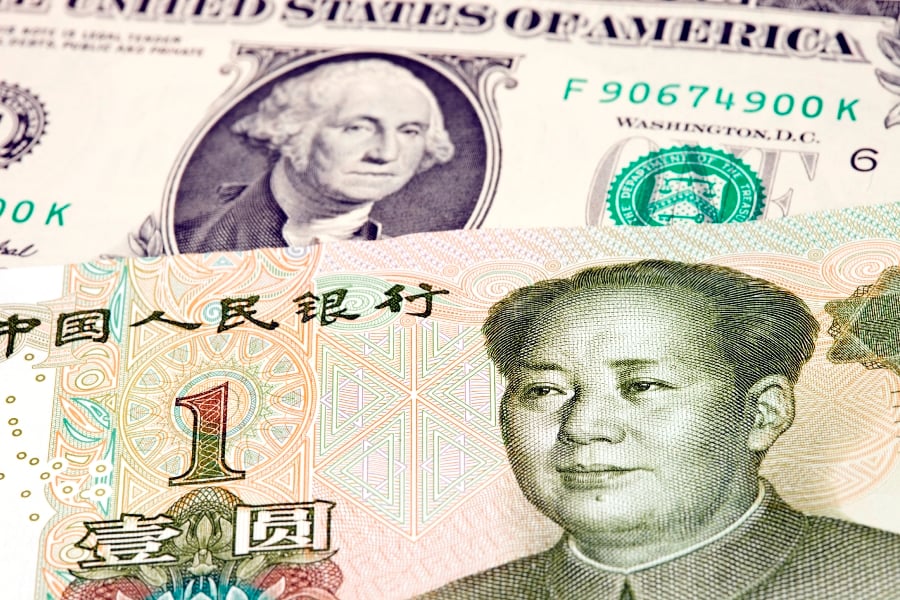MSCI Inc. declined on Tuesday to add China's domestic financial markets to its widely used indexes, but
said it will work with local authorities to provide access to the world's second-largest, and fastest-growing, stock market soon.
The index company said it would add a stake in the onshore securities known as A Shares to its global benchmarks “as soon as the issues it has outlined are resolved.”
“We learned that major investors around the world are eager for further liberalization of the China A‐shares market,” said MSCI's global head of research, Remy Briand, in a statement. “Because MSCI's client base is so large and diverse, we have a strong interest in ensuring that remaining issues are addressed in an orderly and transparent way.”
Index funds globally manage $254 billion in accordance with the MSCI Emerging Markets Index globally, which would be affected by the addition of A Shares. Trillions more in assets track or attempt to beat the firm's benchmarks.
While U.S. investors' stakes in emerging markets have underperformed — the MSCI Emerging Market Index is off 7.3% over the last year — China's equity markets have been delivering incredible returns. For example, the Shanghai Stock Exchange Composite Index is
up 152% over the last year.
Although such returns raise fear of a bubble, many in the U.S. are eager to invest in China. The problem is that most Chinese securities are off-limits to U.S. investors, who lack full access to the world's second-largest economy and the world's second-largest stock market.
Now, MSCI said it will work closely with Chinese capital-markets authorities in a “working group” to resolve issues around the allocation of quotas to foreign investors, restrictions on outflows, among other restrictions.
WILL MOVE SLOWLY
Even when MSCI decides to include the A shares in its indexes, it will move very slowly. The proposal the index firm floated with institutional investors included a sliver of securities traded onshore, weighted at 5% of their market value. That could mean about 1% exposure to China A shares in the MSCI Emerging Markets Index, and a slightly larger weight to China overall, according to some estimates. Full inclusion could follow in the years to come.
In a statement, BlackRock Inc. said it supported MSCI's “deliberate process on the inclusion of China A-Shares into its global indexes, recognizing the practical obstacles that remain for their addition.” The world's largest money manager is a major MSCI client.
“We believe that the Chinese authorities understand these issues and intend to resolve them quickly,” the statement said. “We will continue to work closely with the Chinese government as it takes further steps to implement their policies.”
Separately, MSCI said it would make a decision on whether to include Pakistan in its emerging-markets indexes next year. The firm made Pakistan a “frontier” market in 2009.
MARKET ACCESS AN ISSUE
Last year, when MSCI said it wouldn't include China A shares in its indexes, it based its decision on concerns about international investors' ability to access the markets.
But since then, the market has opened up. For instance, the Shanghai-Hong Kong Stock Connect opened in November. The program gives offshore investors significantly expanded access to A shares. Like other programs for foreign investors, only certain institutions can buy in, and their access is limited by a quota.
Last week, the Vanguard Group Inc.
unexpectedly decided it would add exposure to China A shares to its $68.7 billion Emerging Markets Stock Index Fund (VEIEX) and a related exchange-traded fund (VWO).
Other asset managers will struggle to match Vanguard's ability to access onshore markets without being granted a share of the action by Chinese securities regulators.
A Vanguard affiliate in Australia secured access in March through a license granted selectively to institutional investors that allows it to access $1.6 billion in securities.
Joseph Brennan, the firm's global head of equity indexing, said the firm is not worried about concerns the market is overheated or dominated by unsophisticated retail investors.
“We believe it's the right thing to do,” he said in an interview last week. “The market dynamics will change over time and that's not a concern at all.” Vanguard uses FTSE indexes, whose flagship benchmarks do not currently include China A shares.
BlackRock's popular iShares ETFs are benchmarked to MSCI and will have to buy A shares if MSCI adds them to its MSCI Emerging Markets Index. BlackRock has access to $1.52 billion in onshore Chinese securities, according to asset management consultancy Z-Ben Advisors.







